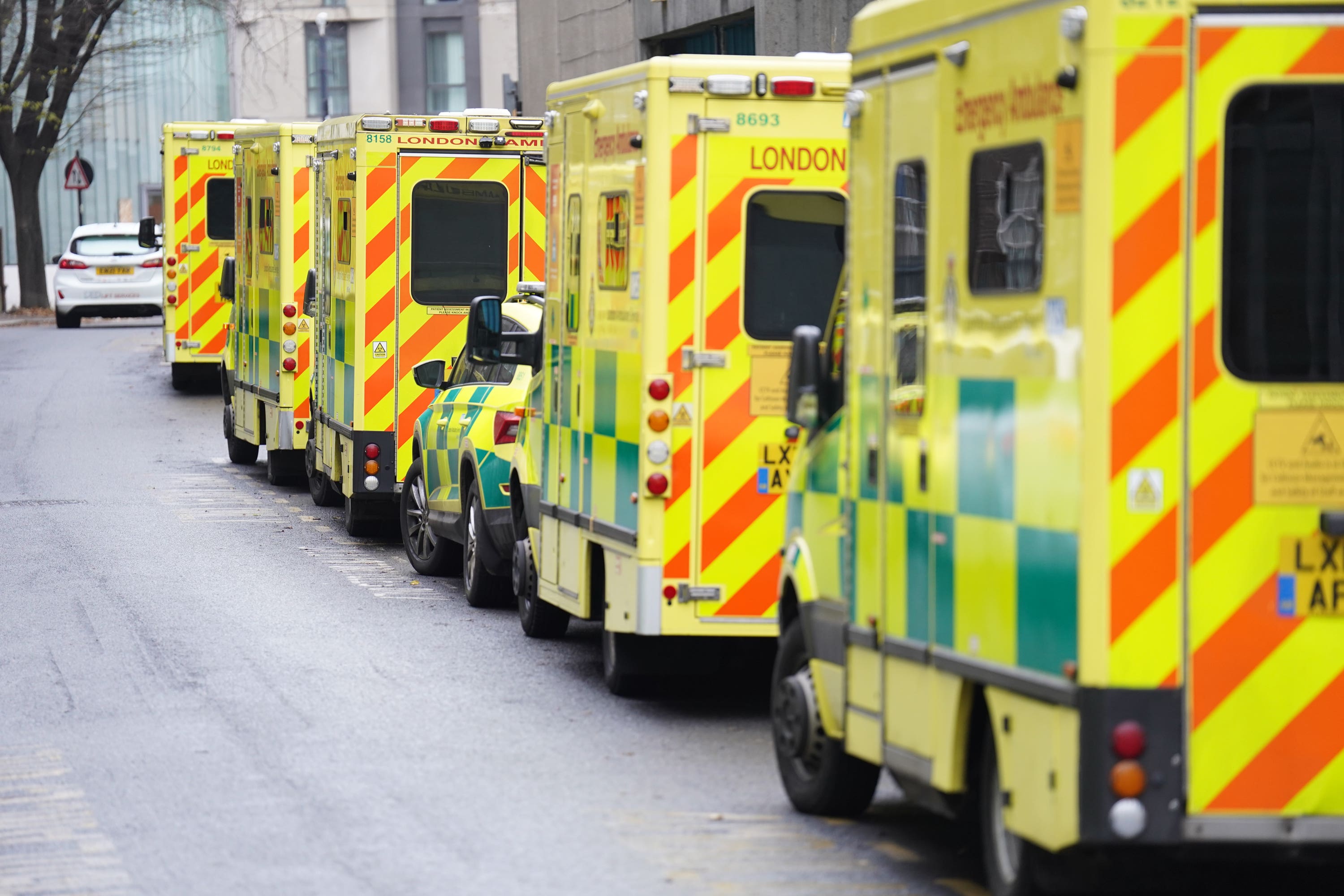What would it take to reform the NHS – and is it even possible?
As focus falls on the health secretary’s lack of a plan to rescue the health service, Sean O’Grady asks why a succession of governments have failed to get to grips with modernising the NHS


Even after recent marginal improvements, NHS waiting lists remain high and government performance targets are being missed. Public satisfaction levels are at their lowest since Labour left office in 2010, and cancer survival rates are poor. Ambulances take about twice as long to turn up as they are supposed to.
There are around 100,000 staff vacancies within the health service, and the pay and conditions offered to its current staff are prompting skilled medics to leave. Industrial relations are notoriously poor. Yet the NHS is also the sixth-largest employer on the planet, only outnumbered by the Indian Ministry of Defence, the US Department of Defense, the People’s Liberation Army of China, Walmart, and Amazon.
The NHS spends around £230bn per annum. That sum should put into perspective the £2bn package promised by Rachel Reeves, and the £2.5bn funding boost plus £3.4bn in capital funding over five years announced by Jeremy Hunt in the last Budget. Both main parties talk about “reform”, but never about moving away from the present model...
Is the UK model of a national health service unusual?
Yes. Most advanced economies have a system more closely linked to the insurance industry, with a majority of the funding flowing through private, sometimes not-for-profit companies and institutions. And yet the French, Germans and Australians aren’t moaning about waiting lists. Maybe we have something to learn?
Are European private insurance systems superior?
In some respects, yes. Such a system takes a lot of the politics out of the system; further, the health insurance companies take on the role of ensuring quality of service, and they can exercise more choice, on behalf of the patients, about where to award contracts. Such systems may also lead to better outcomes, and nicer wards and rooms with optional hotel-style extras.
However, it would not save much cash in the aggregate: Germany, for example, spends about the same proportion of its national income on health as does the UK, despite having a different system. The fact that Germans tend to have better facilities and outcomes may just be a function of their being richer and healthier than the British in the first place. Nor would introducing an insurance-based system suddenly fill the shortage of labour in British healthcare.

Given that the British have less to spend, as a poorer people than, say, the Germans, the NHS provides a more commoditised, lower-cost option, and avoids the significant administrative burden of moving money around between companies and awarding contracts.
You can either pay for healthcare via premiums taken out of wages or by taxes, which also come out of wages. There are pros and cons to each approach. To pretend the UK can enjoy a European standard of healthcare with an American level of taxation is cakeism.
Is the NHS wasteful and inefficient?
It is often said to be, and there are plenty of examples of that, but then again, private corporations are also capable of wasting money – and, though it’s not much comfort, the procurement programmes operated by the Ministry of Defence have been far more inept than anything the NHS has bungled in recent years.
Looking at the big numbers, the NHS is actually quite an economical service per head of population, by international standards. The secret of its success is the flip side of one of its weaknesses. It offers little in the way of patient choice, but the standardised treatments it offers at mass scale do make for lower costs per unit of “output”, under a sort of command system, with no frills. You tend to wait longer on the NHS because the care is rationed on clinical need rather than ability to pay (though the rich in the UK can, and do, jump the queue).
The advantage to the “consumer”, ie the patient, of an NHS social insurance system is that health risks for the nation as a whole are pooled. So while you may live a long and heathy life making few demands on the doctor and paying more in tax than you take out, the NHS also makes sure that if you do develop dementia or a stubborn form of cancer, you will get medical treatment for the rest of your life, free at the point of use, and never have to sell your home. (The present crisis in British social care shows the limits of the alternatives.)
Isn’t the NHS underfunded?
Yes, and it’s a problem, but perversely it has added to its talent for making the most of not much. Given the habit of most governments – perhaps Conservative ones in particular – is to make it survive, fairly deliberately, on “starvation rations”, with periodic targeted emergency funding to fix crises, the dedicated and imaginative people who try to keep the system running are forced to find ways to streamline processes, set priorities, make rapid clinical assessments when urgent, and find (safe) shortcuts.

Targets may be set centrally, but meeting them, either legitimately or by gaming the system, has become something of a cat-and-mouse game. It’s sometimes hard to see what is actually going on – for example, with booking GP appointments, or with emergency care, where admission times for patients waiting outside in ambulances become notional.
So why do we have such poor health outcomes?
A few reasons – some springing from within the NHS, others exogenous. In terms of the NHS, it is still weak on public health and preventative medicine – it’s still more of a “National Sickness Service” because prevention has a low priority given the immediate demands of treating the sick.
More screening through tests and scans would produce better outcomes and financial savings, and is a fine investment for both individuals and the NHS. Catching cancers early is a prime example; providing basic dentistry is another, or would be, where check-ups can help to prevent an eventual emergency admission for severe dental problems.
Outside the NHS, we have to recognise that poverty, obesity, smoking, binge-drinking, low vaccination uptake, sedentary living, stressed kids being bullied on smartphones, and even increased foreign travel are the kinds of societal factor that can lead to poor health. This is especially true of cancers, mental illness, and cardiovascular problems, and these will occur in a society like ours irrespective of how the NHS is run or funded.
How much would it cost to change the system?
Too much. It would require vast capital investment in new systems, and in the extra capacity required to meet the demands placed on the system, because the extra money going in would create a higher demand for services. And, of course, that money, one way or another, will still have to come from the general population.
Instead of paying taxes, the public and employers would be able to pay into an insurance company’s health policy – but it would probably be a less fair system than the current one, in which it all comes from (mostly) progressive general taxation. So in the end, people might receive faster treatment and more choice – but at a higher cost.

Substituting social insurance with a private insurance system or just “pay as you go” isn’t a magic solution – the money to pay for doctors, nurses, scanners, bedpans, path labs, ambulances and huge quantities of paracetamol has to come from somewhere. And of course, many private insurance schemes will not cover chronic or long-term conditions anyway. As in America in the past, if you are unlucky, you may have to sell your home to afford treatment for cancer.
Could we introduce more market mechanisms and competition between NHS trusts?
Yes, but there are limits. It is always going to be a slightly bogus “internal” market, because there are no conventional shareholders, and no government will allow a hospital to go bust and close.
What are the politics of this?
Democracy makes life difficult. As with modernising council tax or the benefits system, reform inevitably creates some losers, who resent it, and some winners, who will be ungrateful. If such change were attempted within an institution as vast as the NHS, the political obstacles, let alone the financial and organisational ones, would be insuperable.
The NHS, as is often remarked, is the nearest thing the British now have to a religion, and you don’t mess with articles of faith if you want to be elected or re-elected. This means that an assault on this institution – which, alone among the pillars of the post-war settlement, emerged virtually unscathed from the Thatcher years – would be practically impossible.
Indeed, Thatcher, despite her hostile rhetoric and her personal preference for private treatment “to enable me to go into hospital on the day I want, at the time I want, and with a doctor I want”, boosted real-terms spending on the NHS over her time in office, presumably to minimise its potential to cause her electoral damage. For much the same motive, the Cameron administration “ring-fenced” some NHS spending during the austerity programme.
So changing the model isn’t on the agenda for the next election?
For better or worse, that is correct.






Join our commenting forum
Join thought-provoking conversations, follow other Independent readers and see their replies
Comments